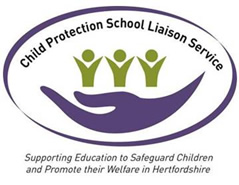Child protection: national guidance
Statutory guidance
Keeping Children Safe in Education (KCSIE)
This is statutory guidance from the Department for Education issued under Section 17 5 of the Education Act 2002, the Education (Independent School Standards) Regulations 2014 and the Education (Non - Maintained Special Schoo ls) (England) Regulations 2011. Schools and colleges must have regard to it when carrying out their duties to safeguard and promote the welfare of children.
Unless otherwise specified, ‘school ’ means all schools whether maintained, non - maintained or independent schools, including academies and free schools, alternative provision academies and pupil referral units. ‘School ’ includes maintained nursery schools . ‘College’ means further education colleges and sixth - form colleges as established under the Further and Higher Education Act 1992, and relates to their responsibilities towards children under the age of 18 , but excludes 16 - 19 academies and free schools (which are required to comply with relevant safeguarding legislation by virtue of their funding agreement).
This document contains information on what schools and colleges should do and sets out the legal duties with which schools and colleges must comply. It should be read alongside statutory guidance Working Together to Safeguard Children which applies to all the schools referred to above, and departmental advice What to do if you are worried a child is being abused 2015 - Advice for practitioners.
DfE: Keeping children safe in education
Working together to safeguard children
Working Together to Safeguard Children (DfE) sets out how individuals and organisations should work together to safeguard and promote the welfare of children.
The guidance is addressed to all practitioners and front-line managers who have particular responsibilities for safeguarding and promoting the welfare of children, and to senior and operational managers in organisations that are responsible for commissioning or providing services to children, young people, parents and carers.
It is also addressed to senior and operational managers in organisations that have a particular responsibility for safeguarding and promoting the welfare of children.
DfE: Working together to safeguard children
Non-statutory guidance
Keeping children safe in out-of-school settings (October 2020)
Information for providers, parents and carers on keeping children safe in community activities, after-school clubs, tuition, sports training and other out-of-school settings.
DfE: Keeping children safe in out-of-school settings
Parental responsibility: guide for schools and local authorities
This is departmental advice from the Department for Education. It is non-statutory, and has been produced to help recipients understand their obligations and duties in relation to the rights and responsibilities of parents as defined by education legislation.
It is intended as helpful guidance for schools and local authorities but should not be treated as a complete and authoritative statement of the law. In this guidance the DFE are careful to differentiate between legal requirement and good practice. They use ‘must’ where a school has a duty. They use ‘can’ where a school has a power (not a duty) under statutory or common law. They use ‘should’ for advice on good practice.
DfE: Parental responsibility: guide for schools and local authorities
Information sharing advice for safeguarding practitioners
Departmental advice for practitioners providing safeguarding services to children, young people, parents and carers. This advice is for front-line practitioners and senior managers providing services to:
- children
- young people
- parents
- carers
It helps practitioners and their managers decide when and how to share personal information legally and professionally.
It might also be helpful for practitioners working with adults who are responsible for children who may be in need.
DfE: Information sharing advice for safeguarding practitioners
